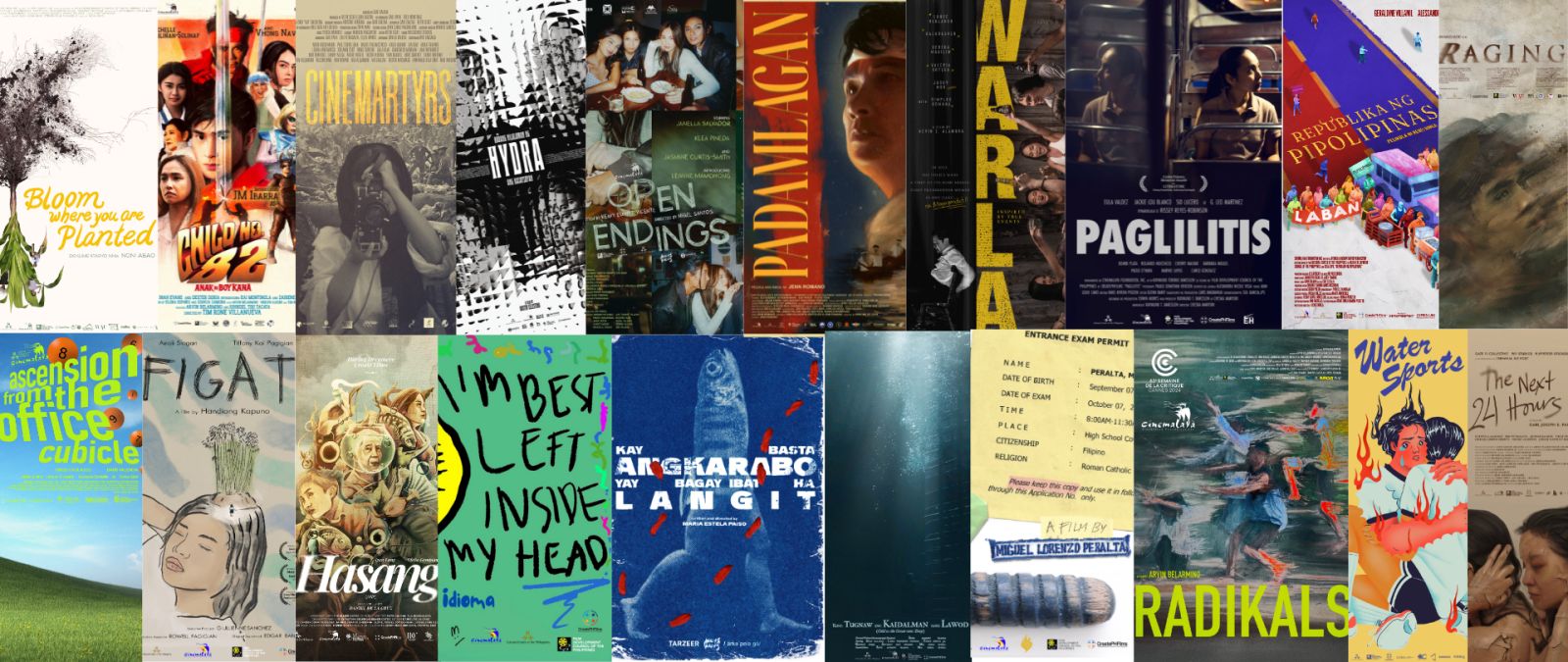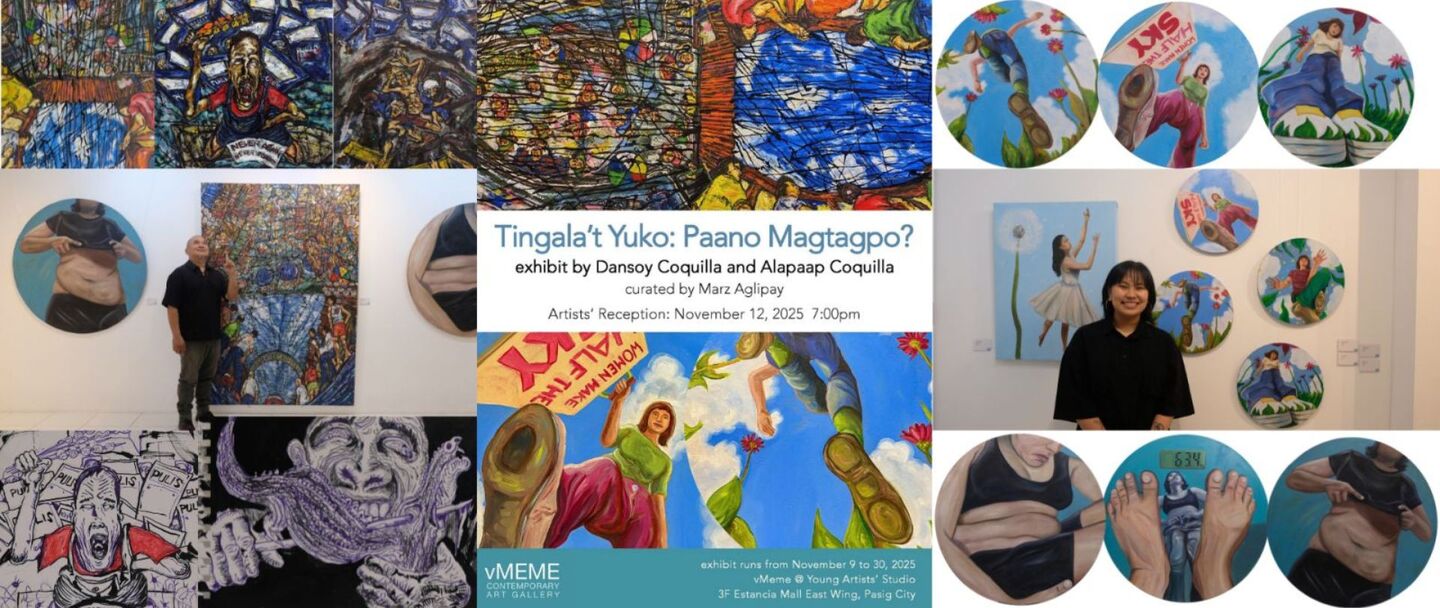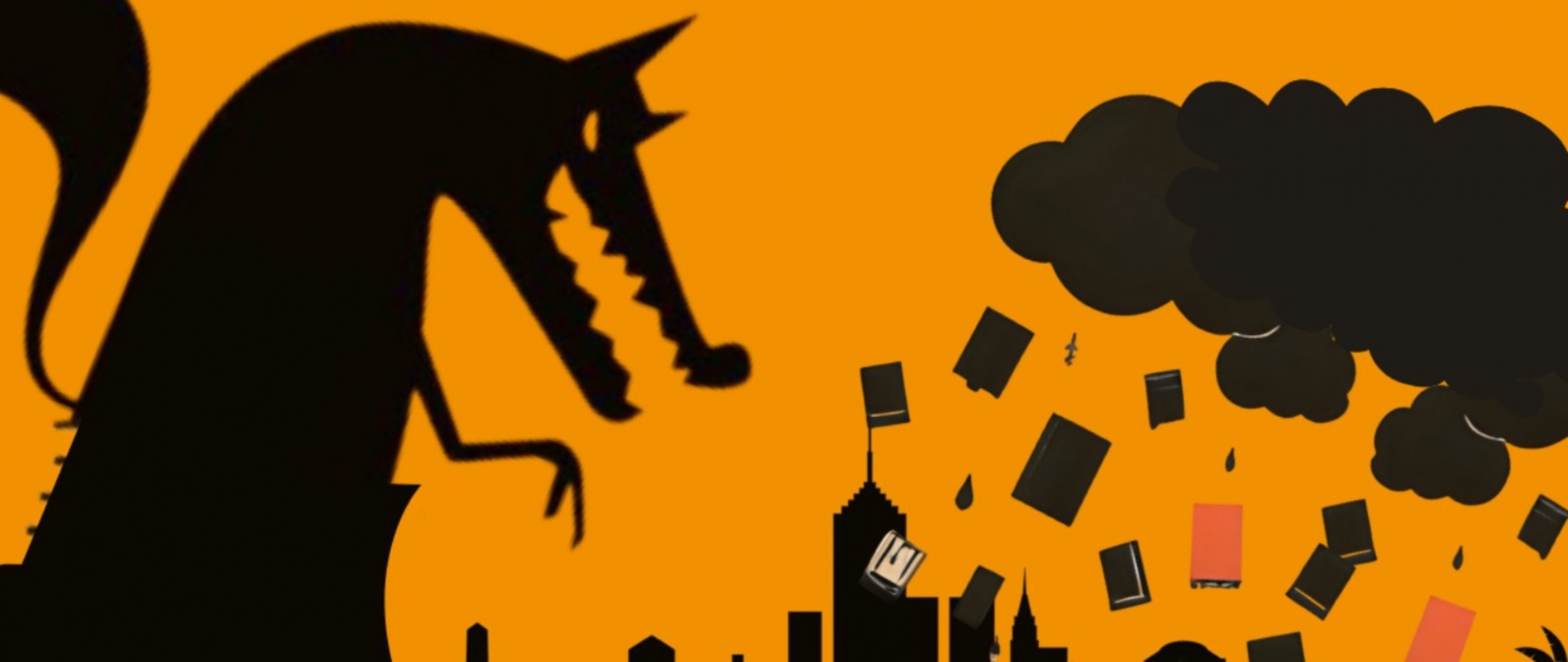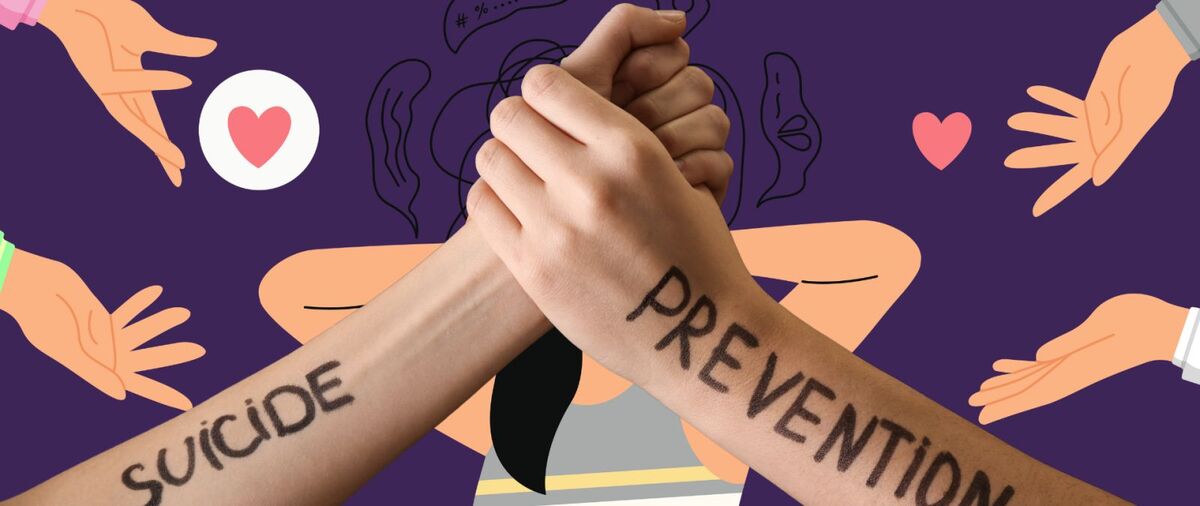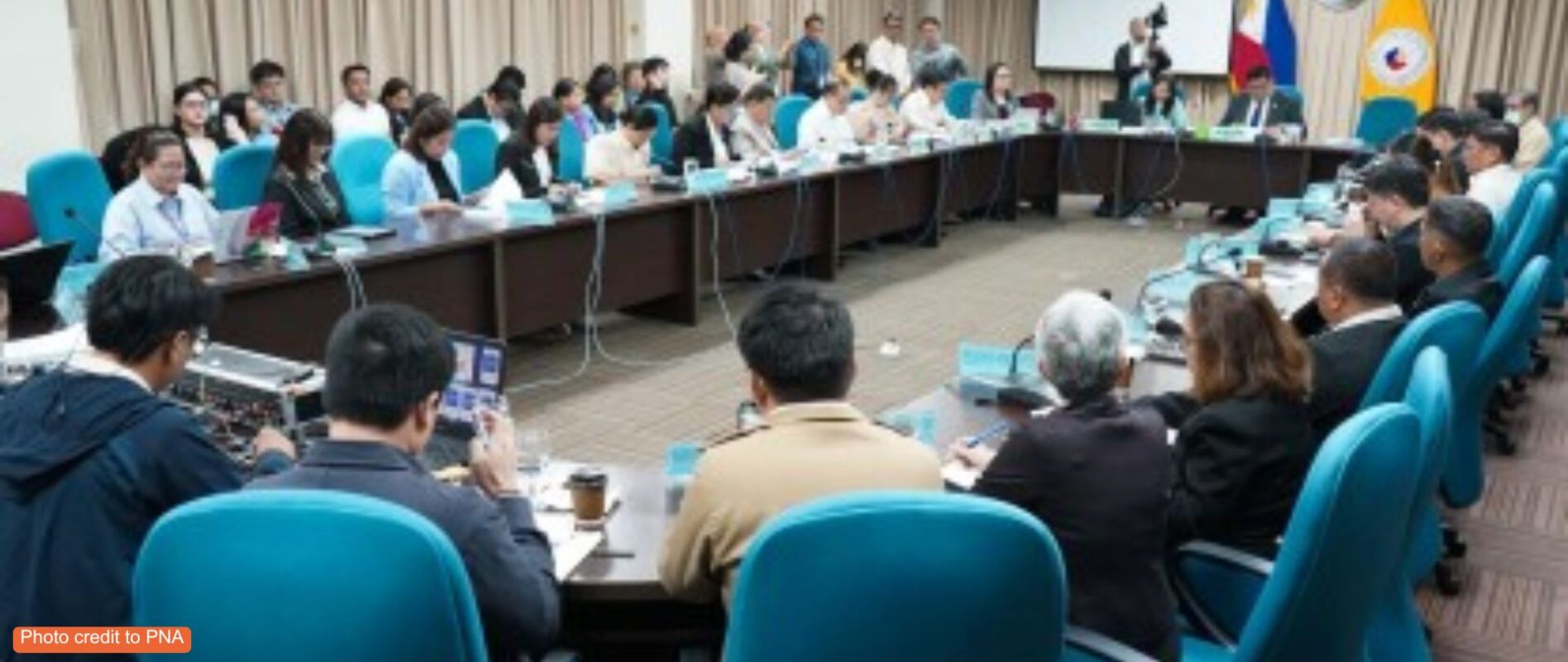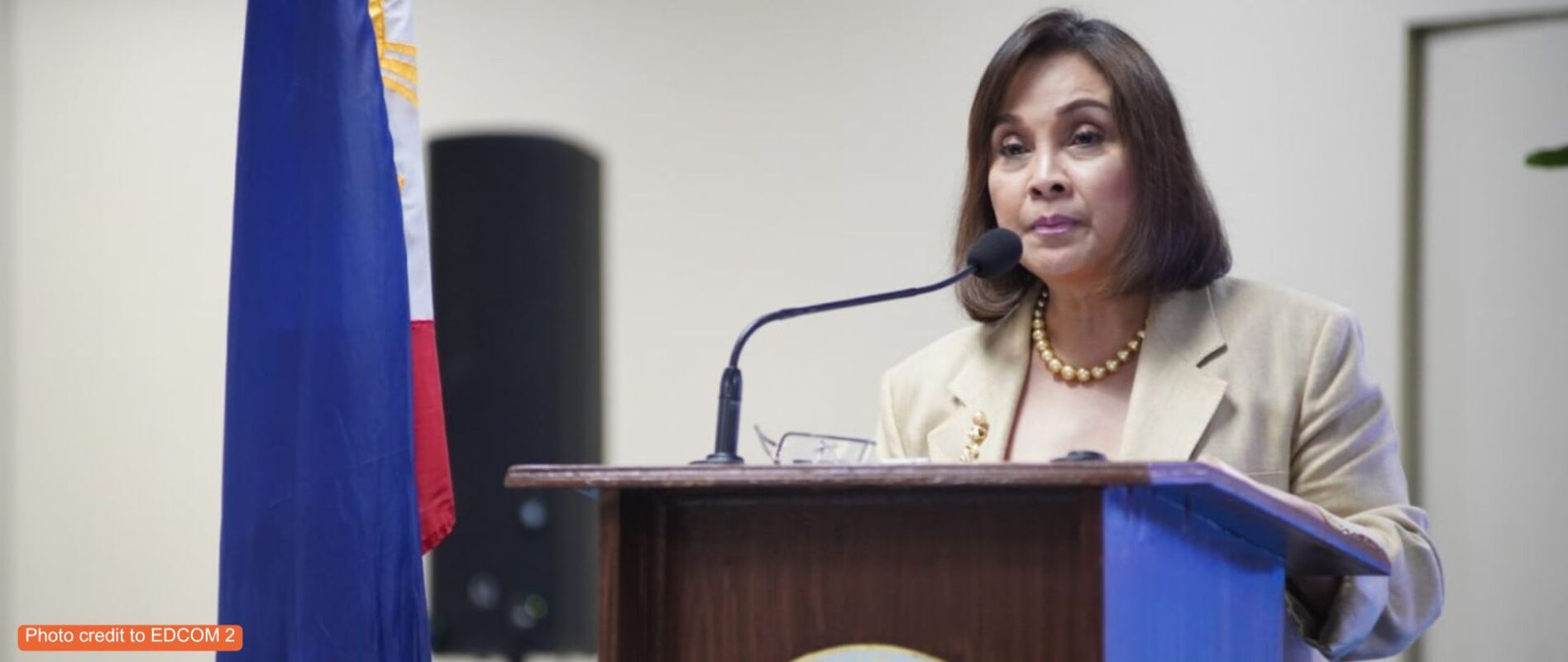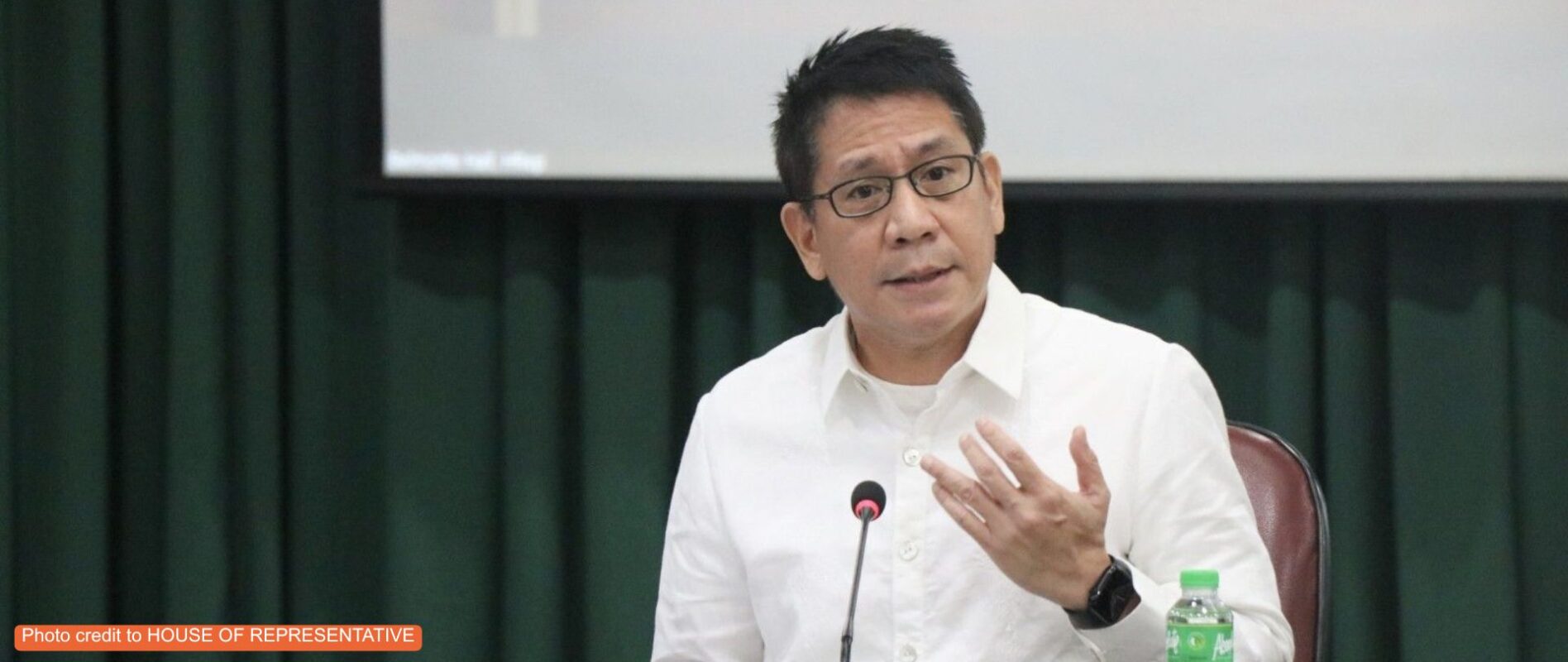Cinephiles, Get Ready! Cinemalaya 2025 is set to sail with unflinching new stories
The Cinemalaya Philippine Independent Film Festival returns for its 21st year from October 3 to 12. Anchored by the theme "Layag sa Alon, Hangin, at Unos," this year's festival is set to showcase a diverse lineup of new full-length and short films. The lineup includes the independent film debuts of OPM icon Ely Buendia and actress Rochelle Pangilinan, reflecting the festival's ongoing mission to champion a new generation of bold and unflinching Filipino stories.
MANILA, Philippines — The Cinemalaya Philippine Independent Film Festival is back for its 21st year, taking over the Shangri-La Plaza cinemas from October 3 to 12. The festival, which serves as a powerful platform for Filipino filmmakers to tell daring and thought-provoking stories, is anchored by a timely and compelling theme: “Layag sa Alon, Hangin, at Unos”.
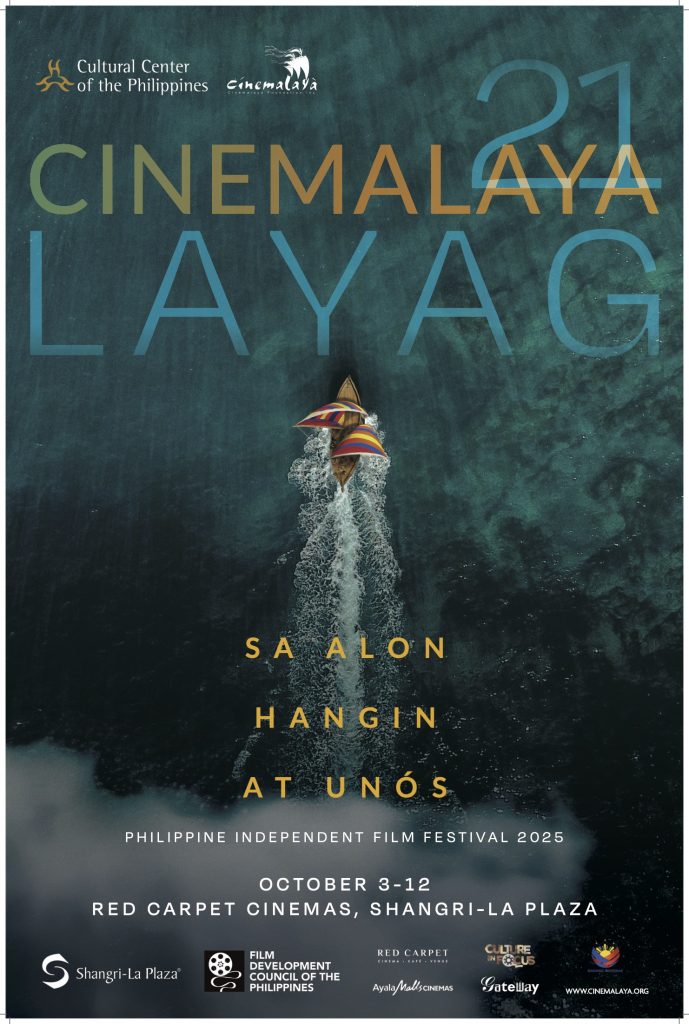 During the festival’s recent press conference, Festival Director Chris Millado explained that the theme is not just a metaphor for the challenges faced by filmmakers, but also a tribute to their resilience. He likened the festival to a traditional Filipino boat, or “balangay,” that has been pushed forward by “wave after wave of new breeds of filmmakers and storytellers over the years.” Millado highlighted that even when Cinemalaya faced challenges, it was the persistent and brave filmmakers who “sturdily put up the sail again with their wonderful, colorful, deeply profound stories.” This year’s lineup, he said, is a direct reflection of that courage, with a wide variety of voices and themes that refuse to be silenced.
During the festival’s recent press conference, Festival Director Chris Millado explained that the theme is not just a metaphor for the challenges faced by filmmakers, but also a tribute to their resilience. He likened the festival to a traditional Filipino boat, or “balangay,” that has been pushed forward by “wave after wave of new breeds of filmmakers and storytellers over the years.” Millado highlighted that even when Cinemalaya faced challenges, it was the persistent and brave filmmakers who “sturdily put up the sail again with their wonderful, colorful, deeply profound stories.” This year’s lineup, he said, is a direct reflection of that courage, with a wide variety of voices and themes that refuse to be silenced.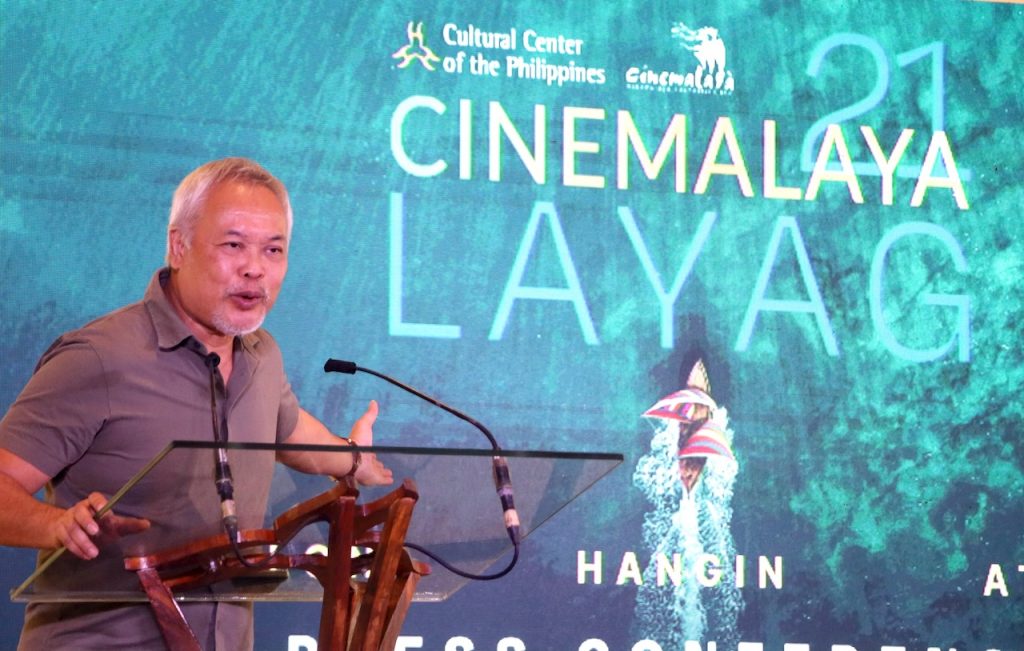
This year’s festival also marks a new era for some of the country’s most iconic figures, as they make their independent film debuts. Eraserheads frontman and OPM icon Ely Buendia takes on a leading role in the period drama “Padamlágan,” while actress Rochelle Pangilinan makes her Cinemalaya debut in the dramedy “Child No. 82.” Their presence in this year’s festival speaks volumes about Cinemalaya’s continued importance in pushing the boundaries of Filipino storytelling and attracting both new and established talents.
Here is a rundown of the films competing for the coveted Balanghai trophies.
FULL-LENGTH CATEGORY:
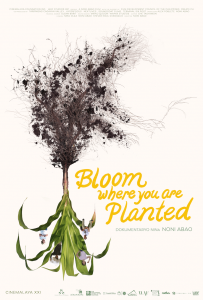 “Bloom Where You Are Planted” by Noni Abao:
“Bloom Where You Are Planted” by Noni Abao:
The Cagayan Valley Region in the Philippines serves as the dedicated workplace
of Agnes (a development worker), the chosen home of Amanda (a jailed mother-artist-activist),
and the birthplace of Randy (a slain peace consultant). Yet, they find themselves unable to
return home: one is relentlessly pursued by the government, another is imprisoned, and the
third is killed on his journey home. The paths taken by these three activists will be explored
including the pit stops, obstacles, detours, and the long road ahead in the journey towards
rebuilding a home with the people of Cagayan – a place that they work together to shape, and
also shape who they are. Amid all these, the film explores their disrupted connections to home
and celebrates their enduring resilience in the face of adversity.
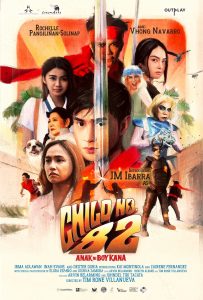
“Child No. 82” by Tim Rone Villanueva:
Maximo “Boy Kana” Maniego Sr., the biggest action-fantasy movie star of
Philippine Cinema, has passed away. Max, a 17-year-old student rumored to be an illegitimate
son of the late icon, has to prove that he is the 82nd child before the end of the public viewing
hours. When proven, it can help Max claim his identity, inheritance, and showbiz dream to
support his pregnant teenage girlfriend and their baby. Will Max reach the casket before the
clock strikes if he needs to stand in line with hundreds of fans and villains who also claim their
places in Boy Kana’s life?
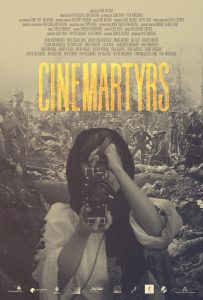
“Cinemartyrs” by Sari Dalena:
A young filmmaker sets out to recreate forgotten massacres from Philippine
history. But when she is challenged by the committee that is belittling her skills, she agrees to go
to the present-day war-torn locations where the atrocities occurred. Overcoming one obstacle
after another with her small crew, they begin shooting at a site where a thousand men, women
and children were slaughtered. But as soon as the camera starts rolling, the angry spirits are
awakened, and the lives of her team and the villagers are put in peril. The brutal traumas of
history echoing to the present day.
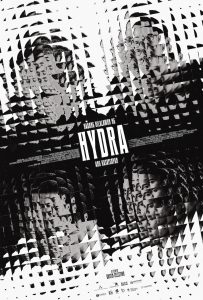 “Habang Nilalamon ng Hydra ang Kasaysayan” by Dustin Celestino:
“Habang Nilalamon ng Hydra ang Kasaysayan” by Dustin Celestino:
Four Filipinos cope with life after a painful political defeat. Kiko, a political
strategist, questions the purpose of his lifelong struggle. Bea, a history professor, attempts to
teach a past her country would rather forget. David, a disillusioned speechwriter, becomes
entrapped by the very lies he tries to challenge. Mela, an election lawyer, confronts family
secrets she has long avoided. Each one searches for purpose as truths fade, histories blur, and
memory itself becomes an act of defiance.
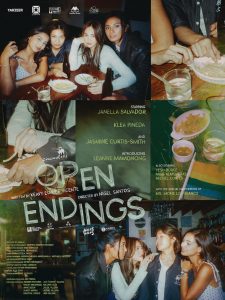 “Open Endings” by Nigel Santos and Keavy Vicente:
“Open Endings” by Nigel Santos and Keavy Vicente:
The film follows Hannah, Charlie, Kit, and Mihan, four queer women in their early 30s
who share a deeply entangled history: first girl crush, first girlfriend, first kiss, first love, great
love, heartbreaks, one-night stands, even ghosting. The romance may have ended, but the
friendship held strong. When Hannah is pulled into deep grief, the others show up without
hesitation. Through breakups, family drama, and personal struggles, they keep choosing one
another. Just when life starts to feel stable, Hannah is faced with a decision that changes
everything without warning. Can their friendship carry the weight of what’s next? Will old
feelings resurface?
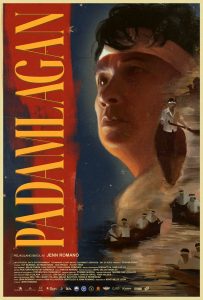 “Padamlágan” by Jenn Romano:
“Padamlágan” by Jenn Romano:
As the Naga community collectively recalls the 1972 Colgante Bridge tragedy
through archives and memory, we see Doring — a devoted voyador — caught between faith,
tradition, and the fractures within his own family. Every year, he joins thousands in Naga City’s
fluvial procession for Our Lady of Peñafrancia, but this year feels different. His estranged son
Ivan has just returned from Manila, restless and questioning, a presence both near and distant.
On the day of the procession, the Colgante Bridge groans under the weight of the crowd. From
the river below, Doring watches in horror as the bridge collapses and bodies plunge into the
water, devotion unraveling into chaos. Ivan was on that bridge. In the aftermath, Doring claws
through wreckage, hospitals, and government offices, searching relentlessly for his son. But the
system is broken: hospitals overwhelmed, records lost, officials indifferent. Families cling to
hope while whispers spread — not all the missing drowned; some disappeared into something
far darker.
Five days later, Martial Law is declared, silencing grief and cementing the unresolved. Doring’s
search becomes not only a father’s desperate act of love but also a mirror of a nation’s haunting
loss, one that lingers in memory and archives, unresolved, unforgotten.
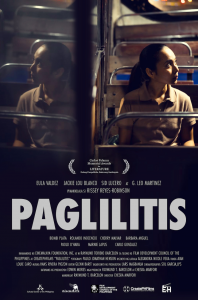 “Paglilitis” by Cheska Marfori and Raymund Barcelon:
“Paglilitis” by Cheska Marfori and Raymund Barcelon:
After years of trauma from pervasive sexual harassment at her workplace,
Jonalyn Samuel quietly lives as a recluse. A passionate lawyer, however, finds and persuades
Jonalyn to file a case against her former employer, the CEO of one of the biggest companies in
the country. Initially reluctant, the lawyer explains that times have changed and the woke
generation will greatly help in pursuing justice. Convinced, Jonalyn takes a risk and finds hope
through the overwhelming support she receives through social media. But, the platform that
initially gives her assurance soon becomes a toxic space that presents her as a heartless
perpetrator instead of a victim.
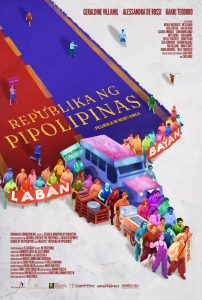 “Republika ng Pipolipinas” by Renei Dimla:
“Republika ng Pipolipinas” by Renei Dimla:
Cora Vitug, a disillusioned farmer, protests against the government’s plan to take
her land and home by renouncing her Filipino citizenship and building her own micronation she
calls Republika ng Pipolipinas. Her solitary act of defiance divides people. She inspires some
while gaining the unfair judgement of many who question her motives and her sanity. When a
new government project hastens her displacement, Cora and the people who believe in her cause
set out to reveal the webbed corruption that extends far beyond the confines of the small town.
As they work against the clock and with looming threats against their freedom, Cora and the
citizens of Republika ng Pipolipinas prove that what truly makes a great nation is not its land
nor its history, but the courage of its people.
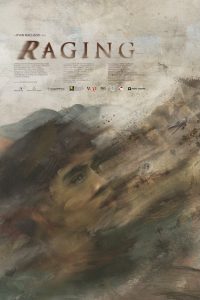 “Raging” by Ryan Machado:
“Raging” by Ryan Machado:
Set in the mid-90s in Sibuyan, Romblon, Philippines, Raging follows Eli, a young
man in his late teens who was raped by one of his peers. After reporting the incident to the
authorities and having it dismissed to be a playful prank between friends, he retreats into a
world of silence and isolation, magnified when his father leaves him to work in a covert mining
site in their small town. When he tries to return to normal life, his abuser continues to appear,
casting a shadow over his every move and provoking at every opportunity. One night, when Eli
witnesses a plane crash that vanishes without a trace, something sparks inside him, igniting a
strong desire to break his silence. This strange event leads him to conduct a personal quest that
parallels his quest for justice.
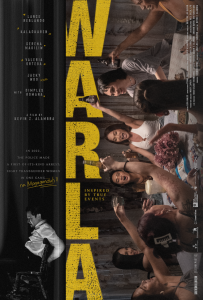 “Warla” by Kevin Alambra and Arah Badayos:
“Warla” by Kevin Alambra and Arah Badayos:
Young Kitkat is taken in by Joice, who leads a group of transgender women
kidnapping foreigners to fund gender-affirming surgeries that they believe will finally allow
them to live as their true selves. Kitkat, however, does not feel the need to change her body to be
a real woman. The others in the gang, like Luningning and Barbie Ann, carry the heavy scars of
rejection, deep gender dysphoria, and painful memories of cruelty they have endured, making
the surgeries feel like a lifeline. For Kitkat, who has never known acceptance from a family,
finding belonging with these women is both healing and complicated, as she must confront the
harsh and destructive choices the group makes. Loosely based on a true story, this crime drama
explores how women who long to stop being preyed upon transform into perpetrators, carving
out power in the only space they feel is left to them.
SHORT FILM CATEGORY:
 “Ascension From the Office Cubicle) by Hannah Silvestre:
“Ascension From the Office Cubicle) by Hannah Silvestre:
Thelma is a call center agent overwhelmed by the oppressive monotony and
exploitation of her job. Craving a real connection amidst her dreary work environment, she
turns to the lottery as a flicker of hope. Her infatuation with the charming lotto presenter,
Arman, begins as a harmless fantasy but soon spirals into full-blown obsession. As Thelma’s
disillusionment deepens, she finds solace in the imagined world inside her computer screen,
where Arman offers her a way out of her mundane reality. A surreal journey through tiny vices,
false hopes and quick fixes, “Ascension from the Office Cubicle” is a tribute to all modern-day
laborers.
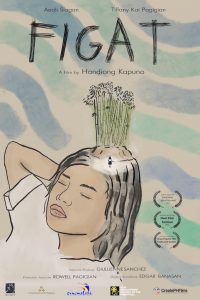
“Figat” by Handiong Kapuno:
Figat is a simple and uplifting short film that follows Ching-ay, a spirited young
girl from Kalinga who carries the soul of her ancestors amidst the noise of modern distractions.
When her teacher assigns the class to bring a musical instrument, Ching-ay chooses to embark
on a journey to craft a traditional instrument from her roots. Guided by her elders and the
rhythms of her heritage, she discovers the profound beauty and power of her culture. Along with
her best friend Gu-ay–as, Ching-ay plays her handmade instrument before her classmates, not
only bridging the gap between past and present but also awakens a sense of cultural pride that
resonates far beyond her classroom. Figat is a celebration of tradition, resilience, and the quiet
strength of a young girl determined to keep her culture alive.
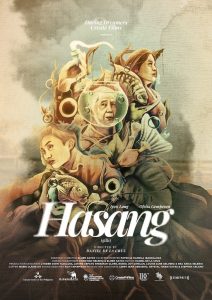 “Hasang” by Daniel De La Cruz:
“Hasang” by Daniel De La Cruz:
Boni lives in a rural community, steeped in indigenous belief that the deceased
are believed to transform into animals after death and return to the wilderness. One summer, he
is entrusted with caring for his grandmother, only to witness her slowly transforming into a
tilapia. Conflicted by love, fear, and helplessness, he must navigate his grief and the spiritual
significance of her transformation. Boni faces a challenging journey of letting go and embracing
the mystical truths while discovering the interconnectedness of all beings in their slowly
deteriorating world.
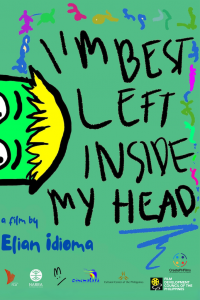 “I’m Best Left Inside My Head” by Elian Idioma:
“I’m Best Left Inside My Head” by Elian Idioma:
Alec Dominguez, a 20-something-year-old multi-talented,
multi-awarded-golden-boy—adopted by the owners of gay philanthropists—returns for a
long-awaited reunion with his old buddies from his original home, The Dominguez Orphanage.
He lingers outside, staring at the worn facade with a nostalgic expression, the smell of old wood
and faint laundry drifting toward him, before an excited voice interrupts. It’s Boy Tao. They hug
tightly, laughter hiding years of absence. Inside the plenary hall, Boy introduces him to the rest
of the gang: Frueland, Edilberto, and Song Un, accompanied by his ever-literal translator,
TRANSlator. Over dinner, the chatter flows warmly—at first. Yet Alec notices something off in
the way they speak to him, almost like he’s a guest in a place that once felt like his own. One by
one, questions dig deeper, centering on his life after adoption. Song Un drops a homophobic jab
about Alec’s parents. Alec tries to respond, but Boy cuts him off with accusations and guilt. Then
Jeppilon appears— burned, broken—a symbol of the orphanage’s neglect after Alec left. The
guilt crushes him. In a violent vision, friends morph into a monstrous amalgamation tearing him
apart. In reality, only Frueland and Edilberto remain, watching as Alec, smiling faintly,
summons a guitar.
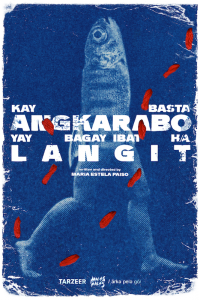 “Kay Basta Angkarabo Yay Bagay Ibat Ha Langit” (Objects Do Not Randomly Fall From the Sky) by Maria Este la Paiso:
“Kay Basta Angkarabo Yay Bagay Ibat Ha Langit” (Objects Do Not Randomly Fall From the Sky) by Maria Este la Paiso:
Standing by the beach, young Sita confesses to her mother that she almost
drowned in these waters when she was a child. In turn, her mother admits that though she grew
up by the sea, she never learned how to swim. Sita and her mother turn into
half-fish-half-humans and swim through their turbulent past in Zambales, all while listening to
the local fisherfolk recount the territorial aggression of China in the West Philippine Sea.
 “Kung Tugnaw ang Kaidalman Sang Lawod” (Cold as the Ocean Runs Deep) by Seth Andrew Blanca:
“Kung Tugnaw ang Kaidalman Sang Lawod” (Cold as the Ocean Runs Deep) by Seth Andrew Blanca:
At the end of the month, an ordinary seaman sent his hard-earned money to his
girlfriend, only to know it wasn’t enough. Fearing she might leave him, he borrows again — this
time from the ship’s Second Officer. As time goes by, the officer keeps pressing him about the
unpaid debt, but the seaman keeps putting him off, trying to calm things down with massages.
Anxiety eats away at him, haunted by the fear that he might be reported. His mind begins to sink
into despair. As the voyage stretched, there was a “Thing” creeping through the corridors and
walls. It has a voice, but no face. Watching from a distance, the thing lets him know it’s there —
waiting.
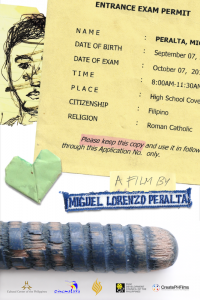 “Please Keep This Copy” by Miguel Lorenzo Peralta:
“Please Keep This Copy” by Miguel Lorenzo Peralta:
Across a white void, old documents and mementos appear, telling the story of a
recent past. During a moment of great political change and violence in the country, a rowdy class
of high school students growing up in an elite private all-boys Catholic school attempt to
navigate systems of influence and control. They do what teenagers do when told what to do: they
try to make their own fun, and find their own voice in the process.
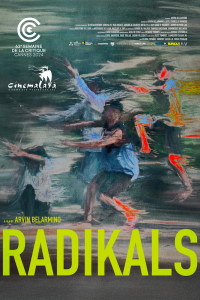 “Radikals” by Arvin Belarmino:
“Radikals” by Arvin Belarmino:
Radikals follows a young, inexperienced dancer in an eccentric “Bakte” troupe
whose disastrous performance draws the ire of a relentless heckler. What begins as a humiliating
encounter spirals into a bizarre chain of events, revealing the troupe’s unsettling way of handling
its weakest links.
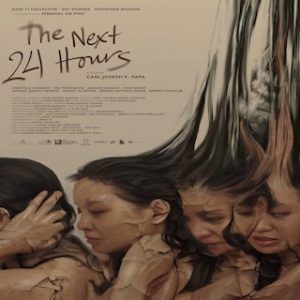 “The Next 24 Hours” by Carl Joseph Papa:
“The Next 24 Hours” by Carl Joseph Papa:
Sheila, a 29-year-old living in Metro Manila, is grappling with the immediate
aftermath of a sexual assault. Over 24 hours, she faces a detached healthcare system, hides her
trauma at work, and resists her assailant’s manipulation. Consumed by shame, fear, and
disbelief, Sheila struggles to reclaim control of her body, her life, and her safety. “The Next 24
Hours” is a harrowing and intimate look at what it’s like to navigate a society that often fails to
protect its victims.
 “Water Sports” by Whammy Alcazaren:
“Water Sports” by Whammy Alcazaren:
The Teacher believes that children are our future. He says to teach them well and
let them lead the way. Show them all the beauty they possess inside. Jelson and Ipe, students
deep in love, undergo trials of the mind and body as they prepare themselves to survive a world
devastated by climate change. Though life may be harsh and unforgiving, They believe what
their teacher says that a strong heart and mind can triumph with an iron will. But Jelson and Ipe
soon learn that maybe the best way to survive the end of the world is to simply just live, laugh,
and love.
With a lineup filled with diverse stories and new voices, Cinemalaya 2025 is poised to be an unforgettable cinematic experience for cinephiles and film enthusiasts alike.

